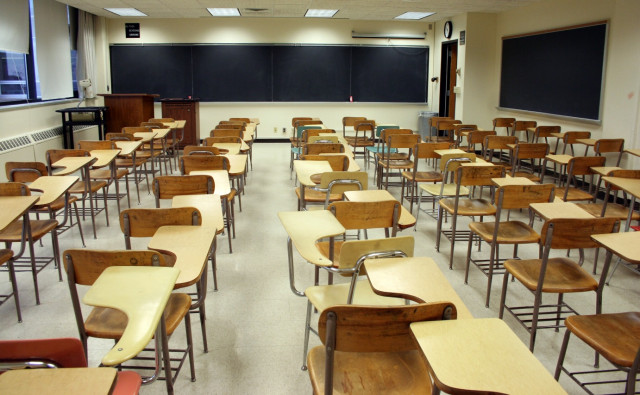Universal schooling: ‘Legislation can’t ensure 100 per cent enrolment’
Legislators, officials discuss obstacles to full enrolment.

Legislation cannot ensure 100 per cent enrolment several parliamentarians and officials of the School Education Department (SED) said on Wednesday.
The dialogue titled ‘Importance of Girls’ Education’ was organised jointly by Jahandad Society for Community Development (JSCD), the UNICEF and the SED. It was held a day before the meeting of the commission tasked to frame a law to implement Article 25-A of the Constitution which makes free and compulsory education a fundamental right.
Members of the Pakistan Boy Scouts Association (PBSA), the Pakistan Girl Guides Association (PGGA) and the UNICEF initiative Young Champions asked questions.
Aslam Kamboh, the SED secretary, said the first meeting of the commission to legislate on free education is to be held on August 2 (today). However, Kamboh said one cannot ensure 100 per cent enrolment will be achieved through the legislation.
sHe said, “There are more schools for girls than boys in the province at the primary level. Despite this, the numbers of girls enrolled in school is lower than the number of boys.” He said the reason was social practice.
Rana Afzal Khan, a Pakistan Muslim League-Nawaz MPA, said such legislations indicate the government’s priorities.
“Legislations are milestones but their enforcement requires a wide range of actions including awareness campaigns and financial allocations,” he said. He said government schools should focus on providing quality education, the lack of which means parents hesitate to trust them with their children.
He said communities must also hold the governments responsible for its failures. “Social awareness is the moral responsibility of any society,” he said.
Tariq Amin Hotyana, MPA and chairman of the Standing Committee on Information Technology, it was a misconception that people do not want girls to be educated. “Today, people want their girls to be educated as well but the problem is a lack of teachers in remote areas. Qualified teachers refuse to go to rural areas,” he said.
Dr Yasmin Rashid, Punjab general secretary of the Pakistan Tehreek-i-Insaf (PTI), said legislation to implement Article 25-A was required urgently. “It is the responsibility of parliamentarians to legislate for compulsory education for the children,” she said. Dr Rashid said legislation was the first step.
Burhan Sadiq, a student at the University of Veterinary and Animal Sciences, asked what did the government intend to do regarding missing facilities in schools and the illegal possession of school land, especially in rural areas. Kamboh answered that less than 1,000 girls’ schools in the province lacked boundary walls, which will be completed by next year. He said there were only 260 schools in the provinces where school land had been grabbed and legal proceedings had been initiated in each case.
Qaiser Rasheed, an SED deputy secretary, said the government was working to provide missing facilities at 2,000 schools. He said 26 per cent of the province’s budget this year had been allocated for schools.
Mariam Farooq, a student at Government APWA College, asked why government officials did not send their children to government schools. Rasheed said, “Government school do not provide students the grooming expected of a good school.” He said his children studied in private schools. SED secretary Kamboh too, said his children were attending private schools.
Asked about the biggest challenge faced by the SED, Kamboh said it was the enrolment and retention of 100 per cent children of the age groups. He said there were 60,000 government schools and over 40,000 private schools in the province. He said approximately 19 million students were enrolled in public schools across the province.
He said the government has recently appointed 46,000 teachers with master’s degrees who will join schools after Eid. He said there will be one teacher for every 29 children in the province after their appointment. He said around 80,000 children had joined government schools in Lahore since April.
Tariq Saeed, an education specialist at UNICEF Punjab, said there was a gender gap in the provision of education. Citing official figures, he said only 2.8 million out of 3.2 million school-aged children are currently in schools.
Published in The Express Tribune, August 2nd, 2012.



















COMMENTS
Comments are moderated and generally will be posted if they are on-topic and not abusive.
For more information, please see our Comments FAQ